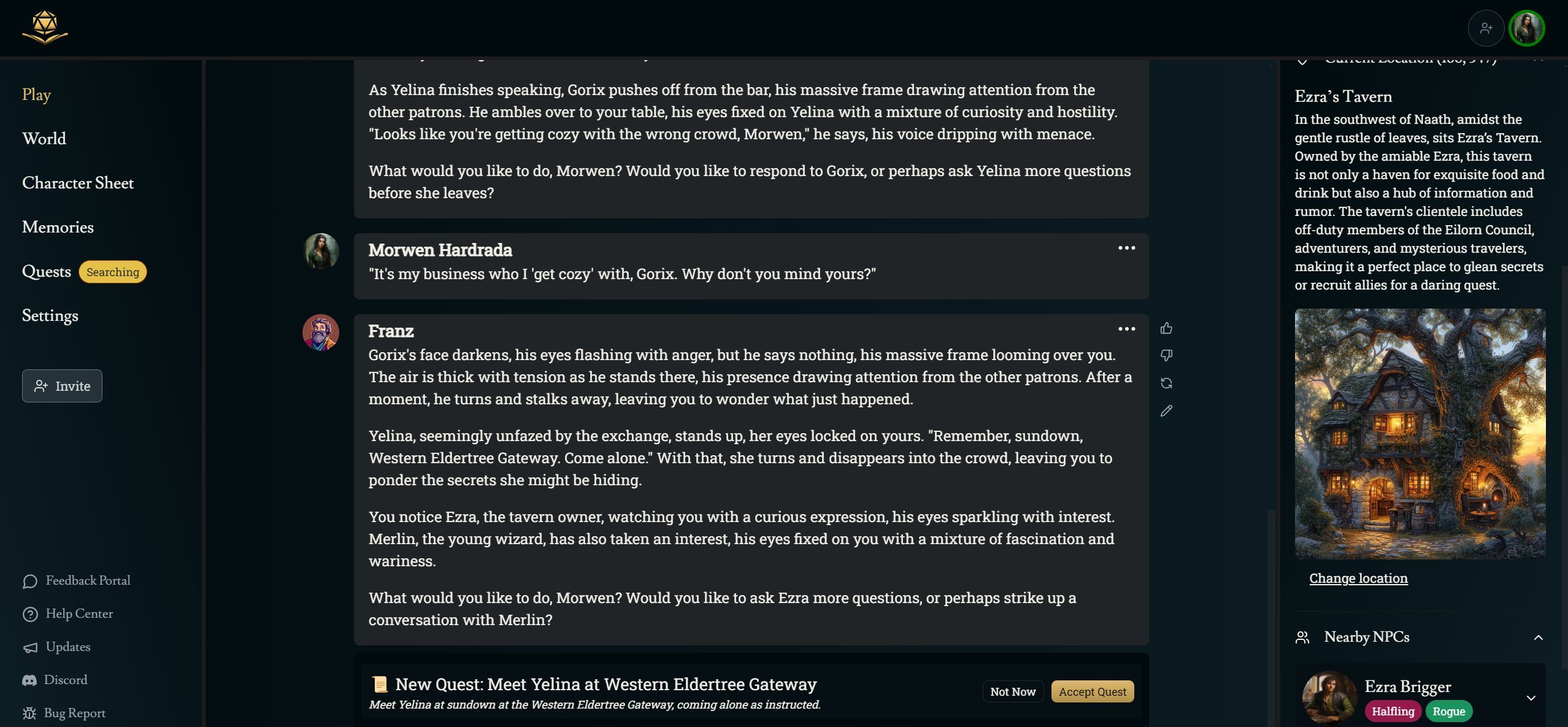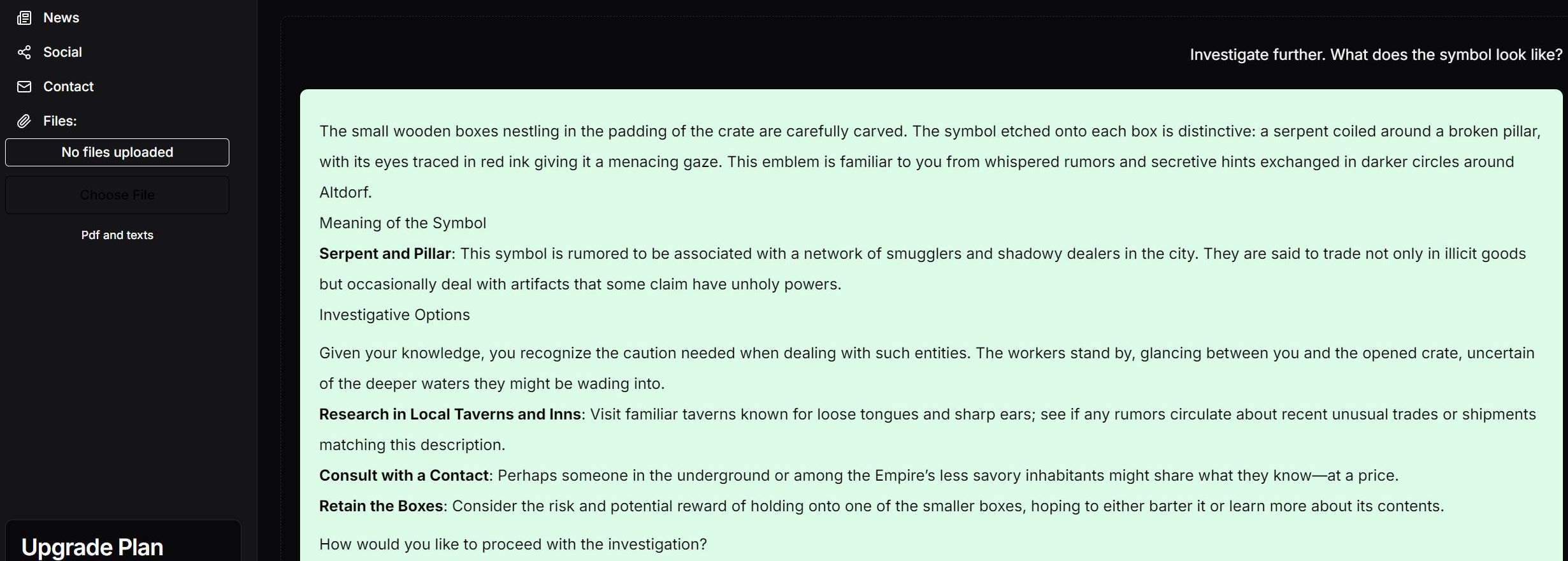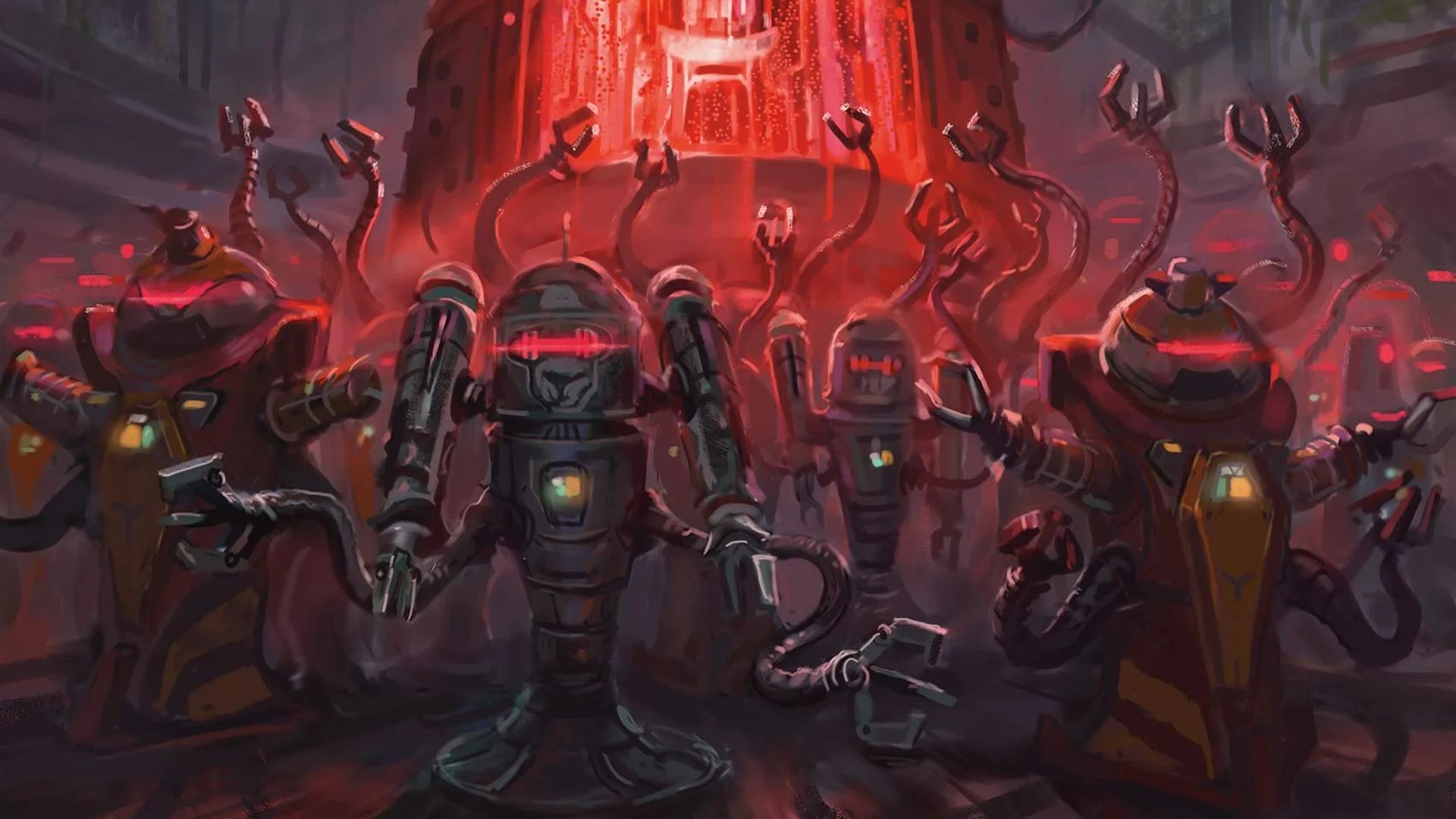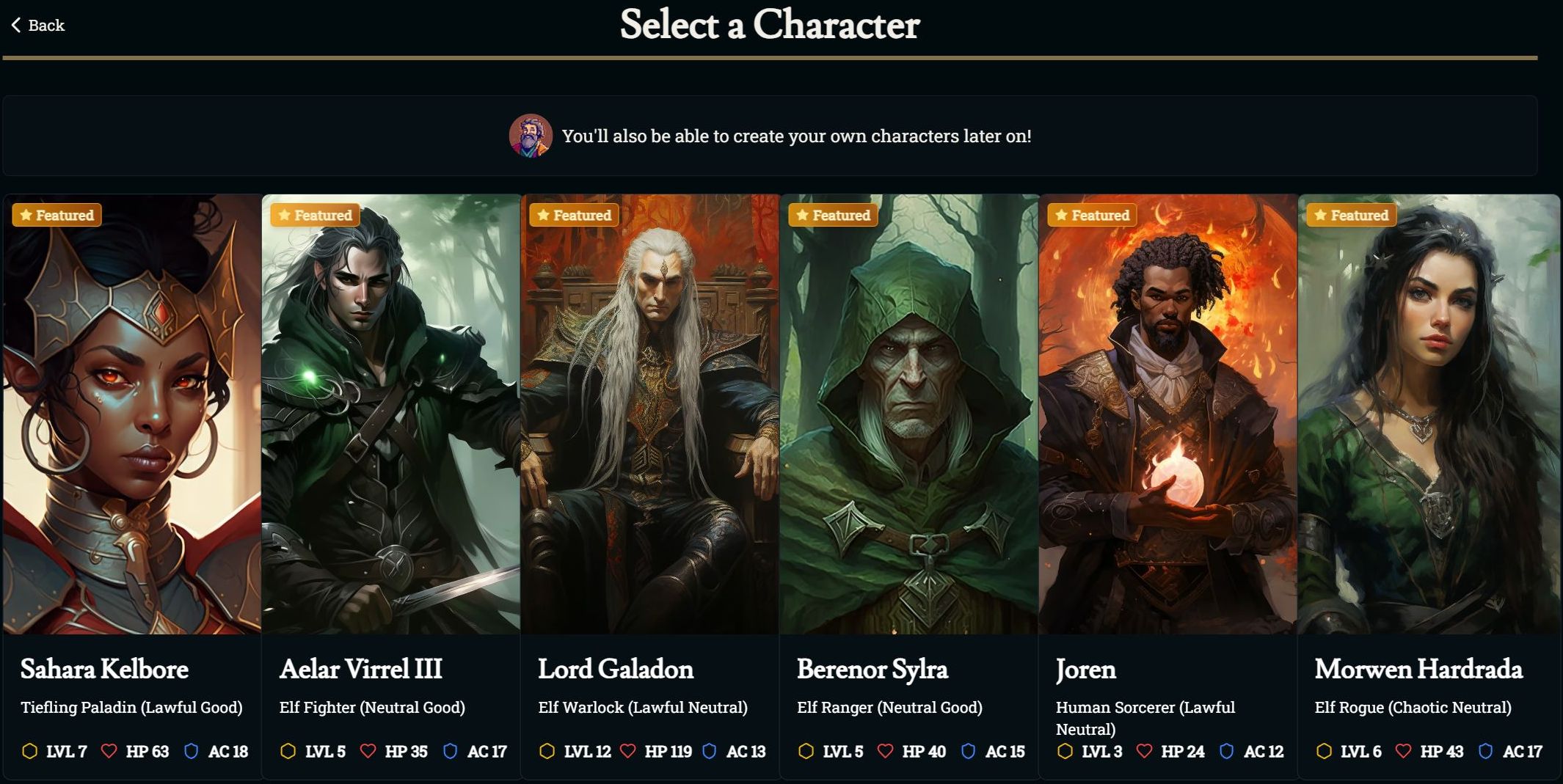In 2018, a gaggle of grad college students at Georgia Tech printed a paper that famous video games had typically been “an essential testbed for synthetic intelligence” prior to now. AIs have been beating us at chess, checkers, and Unreal Event for years, in spite of everything. Since that was the case, they argued, it is sensible for future testing of AI to deal with whether or not they might study to play tabletop roleplaying video games. Video games like Dungeons & Dragons would function an efficient measure of the progress of AI, “because of an infinite motion area, a number of (collaborative) gamers and fashions of the world, and no specific reward sign.”
What they did not predict was how controversial AI would change into by the point that was potential—a subject we’ll come again to later.
In 2019, OpenAI launched GPT-2, a big language mannequin skilled on eight million net pages that would generate narrative responses to quick prompts. Although it wasn’t absolutely launched till November, a partial model was accessible by February, and three months later had already been used to create the primary model of AI Dungeon.
Although extra of a textual content journey than a roleplaying recreation, AI Dungeon was an early style of what it will be prefer to have a pc for a Dungeon Grasp. Whereas the outcomes usually descend into the surreal if not outright nonsensical, it made a advantageous proof of idea. Gamers have been quickly making an attempt to craft the proper immediate to show GPT-2 right into a DM, whether or not by creating opuses over 1,000 phrases lengthy, or crafting one thing that took lower than 100.
Issues emerged with each approaches. The chatbot DM would typically attempt to wrap up a whole fight in a single reply slightly than letting you play it out blow-by-blow. It might neglect what had occurred for those who performed for too lengthy, and was averse to roleplaying conversations. It might take greater than only a well-written immediate to create a synthetic DM.
Professionals stepped in, and now there are a number of options to select from, like Hidden Door, which guarantees to allow you to play a narrative on this planet of Wizard of Oz, Name of Cthulhu, or The Crow because of its use of “a singular structure” and formally licensed supply materials. The top outcome has been underwhelming in my expertise—tales hop from one disconnected scene to a different in a dreamlike style and actions flip-flop backwards and forwards. In a single Name of Cthulhu recreation I used to be chased by a cloaked determine who I managed to flee from, then be caught by, then escape from, then be caught by all whereas gaining and dropping and gaining and dropping a pocketwatch in a tedious strategy of back-and-forth indecision on the narrator’s behalf.
For a extra conventional recreation of Dungeons & Dragons in digital type, there’s Associates & Fables. Created by William Liu and David Melnychuk of indie recreation studio Facet Quest Labs, Associates & Fables comes with character sheets, XP-tracking, a listing, illustrated NPCs, and a narrator nicknamed “Franz” who acts as recreation grasp.
“It isn’t only one chatbot that you just’re speaking to,” Melnychuk tells me. “It is extra like a system the place there’s one a part of the AI GM that causes about, like, is one thing new launched? If there may be, we have to save that to the sport state—or do we have to replace it? Issues like that, it is a bunch of various modules that come collectively to create the ultimate final result that you just see once you play.”
The humorous factor is, whereas Liu and Melnychuk wanted to coach their large-language fashions with examples so it is aware of when so as to add an merchandise to the stock (Associates & Fables primarily makes use of Llama), it already knew the foundations of D&D fifth version. “A whole lot of these giant language-based fashions, they’re really skilled on just about your complete web,” Melnychuk says. “They’ve numerous simply common information about most issues. That features D&D and the SRD.”
“The rule set, Wizards of the Coast has printed it below the OGL and Inventive Commons,” Liu provides. “So it is on the web for these language fashions to Hoover up.”
OK Laptop

Once I play Associates & Fables, it definitely appears like a basic recreation of D&D. I begin at an inn, with Franz describing a number of NPCs I might speak to. Certainly one of them has a lead on a magical artifact value stealing, however desires to satisfy someplace extra non-public to debate it. That results in a journey into the tunnels beneath the town the place a gaggle of wizards have been assembly to conduct magical experiments on the sly. Alongside the best way there are ability checks and back-and-forth dialogues with an insulting barbarian and a curious bard. It appears like precisely the form of recreation of D&D an keen newbie would possibly run.
One off-note is that Franz appears to be obsessive about the phrase “intricately carved wood field,” introducing a couple of unconnected wood field into the story with the identical phrasing each time. Once I carry this up Liu asks if I met anybody named “Elara”, and I inform him I did study a goddess with that identify. Seems, that is one other factor Franz retains falling again on.
“The way in which that these language fashions work is that they are doing next-token prediction,” he explains. “They’re spitting out the sentence, they usually’re getting to some extent—and a token is rather like a phrase, or a string of phrases or characters—and so it is making an attempt to guess, ‘What’s the more than likely subsequent one?’ It isn’t that these are the one names that have been within the coaching knowledge, however that these are those that find yourself having the very best chance to be the subsequent token.”

Associates & Fables remains to be in beta, he factors out, and “we’re positively engaged on fixing a few of these issues.” Even with oddities like these—gamers on the Discord server have cataloged different Franz favorites, like windmills and hooded figures—my expertise was extra sensical than the amusing oddness AI Dungeon quickly descends into.
“If we’re being utterly trustworthy,” Melnychuk says, “I feel if AI Dungeon met our expectations of what we have been anticipating from an AI recreation we in all probability would have by no means constructed Associates & Fables.”
Their motivation comes from a well-known story: the issue of getting an RPG group collectively in actual life. “I’ve a few mates who play numerous D&D,” Liu says, “however they have been deep in their very own campaigns and I did not really feel like I might ask to only be part of after they’re, like, three years deep. I additionally did not actually really feel like simply going out and discovering a gaggle for myself, of strangers.”

It is a story as previous as D&D itself. Even now, with roleplaying on the peak of its recognition, folks wrestle to search out or keep a marketing campaign that fits them. “We get folks that pop up in our Discord on a regular basis who inform us, ‘That is so nice as a result of I’ve two children now, and haven’t got time to play,'” Liu says. “Or there’s one man who informed us—he lives in Iraq, and there is simply, like, no one to play with there. He has an actual onerous time if he desires to play, so this was an answer for him. Simply listening to folks inform us that we’re form of fixing this accessibility problem for them is why we saved doing it.”
Each are at pains to elucidate they don’t seem to be curious about changing human DMs, however slightly in supplementing them. In addition to offering an alternative to individuals who cannot discover a recreation, they need Associates & Fables to have the ability to assist DMs run their very own video games.
“Consider it as a super-powered group chat,” Liu says, “the place you are the DM and you possibly can ship a message and say, like, ‘Jody’s character, roll a ability examine.’ Then a button in your cellphone pops up, and you then hit the ability examine, proper? That is positively a part of the long run imaginative and prescient, however we’re not there but.”
Ethics & Electronics

Who hasn’t, in a second of author’s block, turned to an internet fantasy identify generator? If an AI helps me run a recreation, is it any totally different to recycling bits of a pre-written state of affairs or displaying my gamers NPC artwork I discovered by doing a Google picture seek for the phrase “elf pirate”? I exploit third-party stuff once I roleplay as a result of I haven’t got time to do every little thing—my gamers need not know the way typically I steal NPCs from Brennan Lee Mulligan—and it does not make the video games I run any much less satisfying.
Nonetheless, AI has been a hot-button subject within the pen-and-paper RPG neighborhood. D&D writer Wizards of the Coast got here below hearth for utilizing AI-generated artwork, and although it swore off it, the CEO of its proprietor Hasbro has been way more chipper about embracing AI. Hidden Door CEO Hilary Mason has spoken at size in regards to the moral issues that include generative AI, telling PC Gamer final yr that the corporate is dedicated to utilizing ethically sourced coaching knowledge and paying authors.
“We wish writers to receives a commission,” mentioned Mason. “We see what we do as a means of giving writers entry to the know-how that takes the work they’ve already achieved—all of that world constructing, all of that imagining, all of that writing—after which provides them one other method to share that with their followers the place they receives a commission extra for the work they’ve already achieved. We’re actually excited to work with writers. And personally, I do know that is controversial, however I do not assume AI is innately evil. I feel what we’re arguing about is who will get to learn, and we actually wish to see the writers, the creators, profit from it.”

To generate artwork for its characters and areas, Associates & Fables depends on Secure Diffusion—a deep-learning mannequin that has been criticized for utilizing a knowledge set of publicly accessible pictures with out the permission of their creators, which is why Getty Photos filed a swimsuit towards it. “We completely sympathize with creators and artists who’ve gotten their knowledge primarily skilled on with out permission from all these huge AI corporations,” Liu says. “We do not assume that is proper both. Like, we predict artists must be compensated.”
He compares their use of Secure Diffusion to the best way a DM operating a house marketing campaign would possibly. “AI artwork mills unlock some actually cool issues there the place you’ll be able to’t actually rent a sketch artist to return to each marketing campaign and draw issues out for you on the fly,” he says. “That is simply not potential.” Associates & Fables is not only a house marketing campaign, although. Whilst you and one pal can play free for some time, finally you may run into the paywall.
Whether or not or not there’s revenue concerned, generative AI’s largest critics will not contact it on the premise that it depends on stolen work, devalues actual artists, and generates hole mush. On the opposite facet are individuals who take pleasure in refining prompts and discovering the specialised use instances the place AI can excel as an assistant slightly than a substitute. The position of generative AI in RPGs is being explored and developed at eating room tables, tech startups, and large corporations like Nvidia (which has been experimenting with conversation-holding NPCs), whatever the moral and authorized battle strains having already been drawn, and either side of the tradition warfare utilizing it as one other method to holler at every as predictably as something AI might provide you with.







